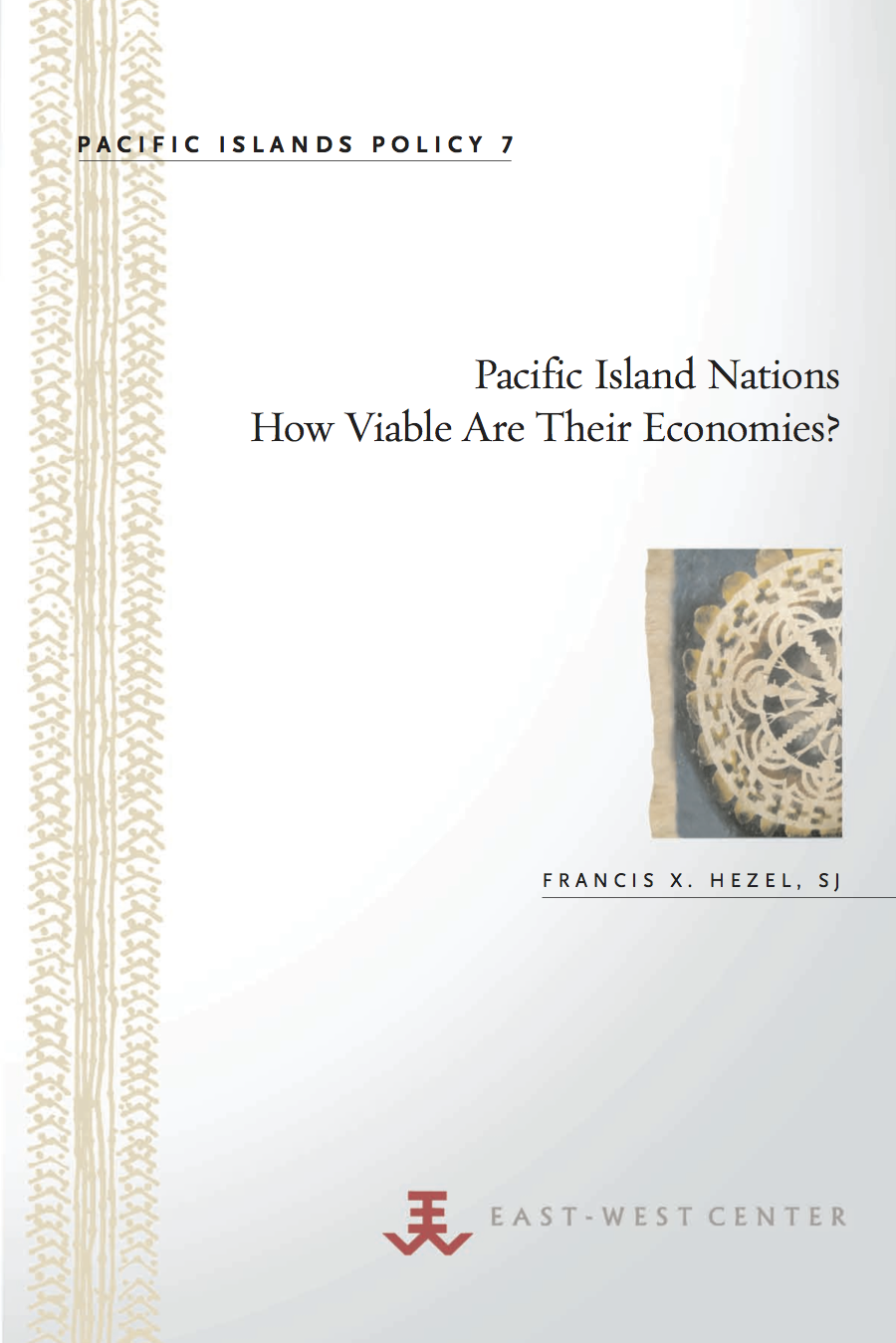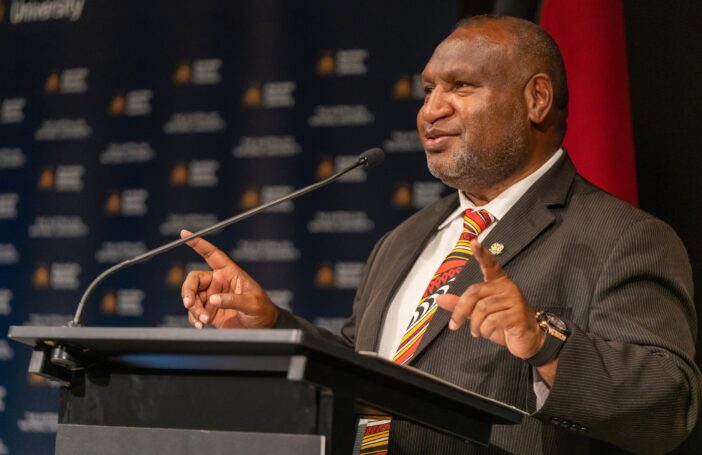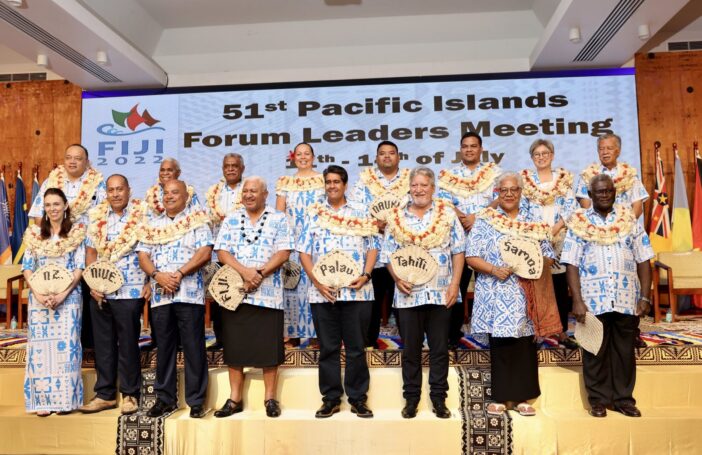For years we have known that the Micronesian island nations are having problems building their economies. Palau might be doing a little better then the Federated States of Micronesia and the Marshalls, but they all seem to be heavily dependant on Compact funds from the US. Are the US-related island nations north of the equator doing worse than the rest of the Pacific Island nations? Perhaps because they’ve become fat and lazy due to the Compact funds?
Last year, with the help of two Fordham graduate students, I gathered as much economic data about the island nations as possible so that we could compare the Micronesian nations with the rest. When looked at this way, the Micronesian nations don’t appear to be doing any worse than their neighbors to the south. But this in itself raises another, more fundamental question: Are any Pacific Island nations able to support a expensive modern government that can provide the public services that people everywhere have come to expect today? Or, to put it another way, can a small island nation, thousands of miles away from the major markets of the world, stoke up an economy of sufficient size to generate sufficient revenue to provide those needed government services?
Development economists frequently argue that with the right policies in place and necessary reforms implemented, any nation, whatever its limitations, can develop a successful economy. But these limitations–scant resources, small population, distance from markets–may be more than just incidental bumps in the road. For years my suspicion has been that they can be insurmountable barriers to self-reliance. When we look at the record, we find that none of the island nations with the exception of Fiji has been very successful in developing a self-reliant economy. This is not to say that none of these nations is blessed with exportable resources. But having abundant exports doesn’t always translate into a strong economy, for the two most richly endowed countries in the region (Papua New Guinea and the Solomon Islands) are also the poorest in per capita income.
Most of the nations in the region are resource-poor and so have had to turn to other strategies than exports to develop their economies. These include tourism, rentals, exported services and remittances from migrants to other countries. As Geoff Bertram shrewdly observes, Pacific nations may pay lip service to the standard development models, but their real hope is placed in less orthodox strategies. While these have provided a steady stream of income for some of the Pacific Island nations, they have not been able to turn these economies around.
Only one of the Pacific Island nations (Fiji) is close to full economic viability at present, while one or two others may be within striking distance. The rest—and they are the majority—seem to have no real prospects for viability. As a rough estimate, one might say that the national economy should be at least five times larger than government expenses for a country to be viable, and not have to be propped up by aid. Under this definition, to become viable, Palau would have to increase its national income by nearly 150%, FSM by 200%, and the Marshall Islands by 250%. But even this is easy compared to some nations. Tuvalu, Kiribati and Nauru would need to multiply their economies by factors of at least five to become self-reliant. Even the Cook Islands and Samoa would need to double their present economies, and the other nations would need to grow their economies between 33% and 70% to pay their own way.
Unless you believe in economic miracles, you would have to answer the question in the title here with a no. Even with tuna prices possibly doubling or tripling in the future, Pacific Island economies do not seem viable. But you would give this answer reluctantly, for fear of offering an easy way out to nations that are nowhere nearly as productive and efficient as they could be.
What does all this mean for the rest of us? Perhaps the larger nations with a stake in the Pacific, such as Australia, Japan, the United States and China–to say nothing of the development economists who visit the Pacific at their bidding–will have to accept the fact that economic dependence is more than a temporary condition for most of the island nations. Foreign aid may not be just a stopgap to achieve economic viability, but a permanent requirement for those nations that will always come up short of this goal.
Read the entire article: Pacific Island Nations: How Viable Are Their Economies? [pdf]
Fran Hezel has spent over forty years in Micronesia. He has served as the director of Xavier High School in Chuuk during the 1970s and was the founder and executive director of Micronesian Seminar, a public education and research institute run by the Jesuits. He is currently living in New York but expects to return to the Pacific next summer.






The article that is posted here has already drawn several responses, not as comments here but as emails. Perhaps I should have posted a disclaimer. I’m not an economist, as is probably obvious to those who have read the article, but only a dabbler with a fascination in the history of economies on the world stage. Even in that area the reading list I can draw on is embarrassingly short.
Most economists take a “where there’s a will there’s a way” view of national economies, while my article takes a “we’re all victims of our circumstances” approach to development. Anything is possible, most development economists posit. By the clock of world history, of course, it’s possible to imagine a radical change in circumstances. Tourists may begin flocking to Kiribati at some point in the future, or new and valuable resources may turn up off the shores of Yap, or the world may yet find the rare ingredients for a wonder drug in the coral flats of the Pacific, or the Cook Islands might become the next international call center. Maybe, but I wouldn’t count on it. Certainly not in the short term–and that is precisely how the future is defined in the Pacific.
My own view is that some places are simply crippled by force of circumstances. Resources are scarce (especially the kind that can be traded on the world market), the marketing attraction of the location is offset by distance and small size, and the population is not likely to find top jobs in Silicon Valley. There are places in the world, like Haiti, whose time has clearly not yet come. Perhaps it never will. But there are other spots, like the Seychelles, who are doing much better. Is the difference simply that the economic planners in the latter did much better than in the former? Then, too, there are those places whose time has come and gone, like Nauru.
You’d think that I, of all people, would believe in miracles. They can certainly happen, but most of us pragmatists wouldn’t put money on it. Meanwhile, the nations of the Pacific have to find a way of providing a costly government–not because their former colonizers told them they had to do so, but because this is what it takes to be a part of the modern world today. Education means good teachers who are getting a salary. Health means access to modern drugs and services, that are paid for in dollars or euros or yen. So the Pacific is doing what it can, under the circumstances, to hustle the money needed, even if this means packing off a third of its people to work abroad. If the jobs aren’t to be found in the islands, then send the people to where they are to be found. If there are no products to be sold abroad, then sell off-shore banking or whatever else developed countries will pay for.
It’s a pragmatic approach by people who might like to believe in miracles, but don’t dare count on them.
Hello Father Hezel. I’ve read most of your work and am not surprised with your perspective given your long standing record in Micronesia. It is not surprising that your views are somewhat pessimistic to the average optimist given the nature of pragmatism in Pacific Islands. However, it is also important to be positive and not really dwell in a fatalistic outlook, for human dignity plays a huge role in performance and it is my firm belief that Pacific Islanders have yet to fully decolonize their mind in order to pursue independently a way of thinking that would dignify them to perform at their peak. This has yet to be done and even consultants at large including ADB and World Bank find most of their loans not performing as well as they should because the Pacific populations under the loan are not implementing as expected by ADB/World Bank consultants. It is difficult to steer away a population from their cultural norms and common laws/precedents given their habits and it is a difficult mindset to change. However, it works both ways for it is not decolonizing the mind of the colonized that we have to worry about but also decolonizing the mind of the colonizer to have a fairer share in decision making especially when development is highly dependent on the people developing themselves hence it should be catered towards their end and not necessarily towards what we believe that end should be. I love your work and hope that you continue in your quest in assisting Pacific Islanders, Micronesians especially, in truly discovering a deeper sense of self that is pure, uninfluenced, and independently created to think freely on what success really means through their first thoughts on what they entail as people.
Fran, I enjoyed reading your paper. It presents some fresh perspectives on a longstanding but very important question.
I agree with the sentiment that perhaps we ought to allow for some degree of Pacific “exceptionalism” when it comes to expectations on economic growth. After all, most of these countries face permanent diseconomies of scale and other structural impediments and disadvantages.
But at the same time, at least for my own country (the Marshalls), it is absolutely clear that we can do significantly better in managing the resources and opportunities we have towards better development outcomes. While an economic miracle is unlikely, we can still make incremental progress. And this requires strong governance and leadership, and credible policies and plans that are effectively implemented. If any one of these essential ingredients is missing, which is often the case, our chances for real progress are slim.
So while some degree of (cautious) exceptionalism is okay when it comes to our expectations on economic growth, NO degree of exceptionalism should be tolerated when it comes to our expectations of governance.